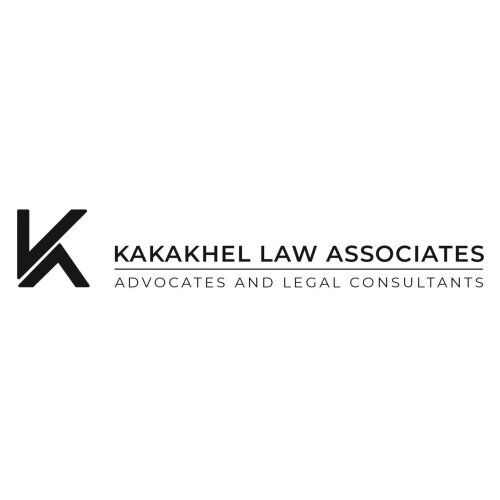Best Nonprofit & Charitable Organizations Lawyers in Peshawar
Share your needs with us, get contacted by law firms.
Free. Takes 2 min.
List of the best lawyers in Peshawar, Pakistan
About Nonprofit & Charitable Organizations Law in Peshawar, Pakistan
Nonprofit and charitable organizations play a vital role in Peshawar, contributing to various social, educational, health, and community development initiatives. These entities are governed by a set of legal frameworks designed to ensure transparency, accountability, and efficient use of resources. Nonprofits in Pakistan generally operate under the Societies Registration Act, 1860, the Trust Act, 1882, and other related laws, which prescribe the formation, operation, and dissolution of such entities. Understanding these legalities is crucial for anyone involved in running or setting up a nonprofit or charitable organization in Peshawar.
Why You May Need a Lawyer
There are several scenarios where legal assistance may be necessary for nonprofit and charitable organizations in Peshawar:
- Formation and Registration: Navigating the registration process requires compliance with specific legal requirements, which can be complex.
- Taxation Issues: Nonprofits often seek tax-exempt status; understanding tax obligations and exemptions under local laws is critical.
- Compliance and Reporting: Ensuring adherence to regulatory requirements and maintaining proper documentation is crucial to avoid legal disputes.
- Contractual Agreements: Drafting and negotiating contracts with donors, employees, or partners may require legal expertise.
- Dispute Resolution: Addressing internal governance issues or external disputes may necessitate legal intervention.
- Intellectual Property: Protecting the organization's intellectual assets such as logos and publications.
Local Laws Overview
The legal landscape for nonprofit and charitable organizations in Peshawar is governed by several key legislative instruments:
- Societies Registration Act, 1860: This act is crucial for the registration of charitable societies and associations.
- Trust Act, 1882: Governs the formation and administration of trusts, which are often used for charitable purposes.
- Charitable and Religious Endowments Act, 1890: This act manages the oversight and administration of charitable endowments.
- Income Tax Ordinance, 2001: Offers guidance on tax exemptions and the requirements for nonprofit status.
Frequently Asked Questions
1. What are the first steps in forming a nonprofit in Peshawar?
Start with defining your mission, choosing a legal structure, and assembling a board of directors. Then, prepare your documentation for registration under the relevant act.
2. How can a nonprofit achieve tax-exempt status?
Nonprofits must apply for tax-exempt status with the Federal Board of Revenue (FBR) and comply with the Income Tax Ordinance requirements.
3. Are there specific reporting requirements for nonprofits in Peshawar?
Yes, nonprofits must annually submit financial statements and audited reports to relevant regulatory bodies to ensure compliance.
4. Can a nonprofit engage in commercial activities?
Nonprofits can engage in commercial activities if the proceeds directly benefit their mission; however, such activities must be reported accurately.
5. What is the role of a board of directors in a nonprofit?
The board provides governance oversight, strategic direction, and financial accountability for the organization.
6. How do nonprofits handle employment and labor laws?
Nonprofits must comply with local labor laws when hiring employees, including adherence to minimum wage, benefits, and workplace safety regulations.
7. Is it possible to convert a for-profit entity into a nonprofit?
Yes, but it involves restructuring the entity's governance and complying with nonprofit-specific registration regulations.
8. What legal protections are available for nonprofit intellectual property?
Intellectual property can be protected through registration of trademarks, copyrights, and patents as applicable.
9. How are dissolutions of nonprofit organizations handled?
Dissolution must comply with legal procedures, including settling debts and appropriately distributing remaining assets according to the law.
10. Can nonprofits participate in political campaigns?
Nonprofits must avoid direct political campaign activities to maintain their tax-exempt status, although they can engage in advocacy.
Additional Resources
For further assistance, consider reaching out to:
- Charity Commission Provincial Office: Provides guidance on registration and compliance.
- Federal Board of Revenue (FBR): Offers resources on tax obligations and exemptions.
- Pakistan Centre for Philanthropy (PCP): Provides certification and information services.
Next Steps
If you need legal assistance with nonprofit and charitable organizations in Peshawar, consider these next steps:
- Consult a Lawyer: Engage with a lawyer specializing in nonprofit law to help navigate legal requirements.
- Attend Workshops: Participate in seminars and workshops on nonprofit management and law.
- Contact Regulatory Bodies: Reach out to relevant governmental agencies for officially sanctioned guidance.
- Join Networks: Connect with other nonprofits and legal experts through local and national networks to share experiences and resources.
Lawzana helps you find the best lawyers and law firms in Peshawar through a curated and pre-screened list of qualified legal professionals. Our platform offers rankings and detailed profiles of attorneys and law firms, allowing you to compare based on practice areas, including Nonprofit & Charitable Organizations, experience, and client feedback.
Each profile includes a description of the firm's areas of practice, client reviews, team members and partners, year of establishment, spoken languages, office locations, contact information, social media presence, and any published articles or resources. Most firms on our platform speak English and are experienced in both local and international legal matters.
Get a quote from top-rated law firms in Peshawar, Pakistan — quickly, securely, and without unnecessary hassle.
Disclaimer:
The information provided on this page is for general informational purposes only and does not constitute legal advice. While we strive to ensure the accuracy and relevance of the content, legal information may change over time, and interpretations of the law can vary. You should always consult with a qualified legal professional for advice specific to your situation.
We disclaim all liability for actions taken or not taken based on the content of this page. If you believe any information is incorrect or outdated, please contact us, and we will review and update it where appropriate.









